Tea vs Coffee: How Much Caffeine Is in Each—and What It Means for Your Energy, Mood, and Ritual (Bazan Coffee Guide)
When comparing your morning brew, many of us face a recurring question: how much caffeine in tea vs coffee and which offers the better energy boost? The answer isn’t as simple as you might think. While both tea and coffee contain caffeine, their effects, concentrations, and health impacts vary dramatically.
In this deeply researched, expert-backed guide, we break down the caffeine differences between coffee and tea from a chemical, physiological, and lifestyle perspective. Citing credible data from the Specialty Coffee Association (SCA), Coffee Quality Institute (CQI), World Coffee Research, and insights from Barista Hustle, we’ll help you understand how much caffeine is really in each drink, and why Bazan Coffee continues to be a smarter, tastier source of daily energy.
How Much Caffeine in Tea vs Coffee: The Short Answer
Caffeine content varies widely based on origin, preparation, and brewing methods. But here's the quick comparison:
|
Beverage (8 oz serving) |
Avg. Caffeine (mg) |
|
Brewed Coffee (Arabica) |
95–120 mg |
|
Brewed Coffee (Robusta) |
140–200 mg |
|
Espresso (1 oz) |
63–75 mg |
|
Black Tea |
40–70 mg |
|
Green Tea |
25–45 mg |
|
White Tea |
15–30 mg |
|
Decaf Coffee |
2–6 mg |
Conclusion: Coffee especially Robusta or strong brews like Bazan’s has 2–4x more caffeine than green or black tea.
But caffeine alone isn’t the whole story. Let’s explore further.
Caffeine in Coffee: A Breakdown by Type and Method
How Much Caffeine in Green Tea vs Coffee?
-
Green tea: 25–45 mg per 8 oz
-
Depends on leaf maturity, steep time, and temperature
-
Contains L-theanine, which tempers the caffeine’s effect (slower onset, less crash)
-
Coffee (Arabica): 95–120 mg per 8 oz
-
Faster absorption, more pronounced stimulation
-
Robusta: 140–200 mg per 8 oz, higher than most teas 4x over
According to Barista Hustle, caffeine in coffee is also more bioavailable, meaning it’s absorbed more quickly by the body. This results in a faster energy spike and more pronounced focus.
Bazan’s Fine Robusta – Krong Năng delivers high caffeine with caramelized sweetness, avoiding the harshness of commercial Robusta blends.
How Much Caffeine in Black Tea vs Coffee?
-
Black tea: 40–70 mg per 8 oz
-
Slightly more than green tea due to full oxidation
-
Contains tannins that may slow caffeine absorption
-
Specialty coffee: 95–200 mg
-
Robusta blends can exceed 150 mg easily
CQI’s caffeine density study (2021) showed that Robusta naturally has up to 2.2% caffeine by weight, while Arabica averages 1.2%. Brewing ratios and grind sizes affect final cup strength significantly.
Why Coffee Feels Stronger Than Tea
-
Concentration and Brew Ratio:
-
Coffee is brewed at a higher grounds-to-water ratio than tea (typically 1:15 vs 1:50)
-
Results in a more caffeine-dense liquid
-
Absorption Kinetics:
-
Caffeine in coffee is absorbed in ~15 minutes, tea’s L-theanine delays onset to 30–45 minutes
-
Synergistic Compounds:
-
Tea contains L-theanine, which promotes alpha brainwaves and calm alertness
-
Coffee has chlorogenic acids and diterpenes that boost mental alertness but may increase heart rate
-
Serving Size and Strength:
-
Tea is typically steeped for 2–4 minutes, coffee is brewed for full extraction
-
Cold brew or espresso can push coffee caffeine over 200 mg per serving
The Role of Roast, Origin, and Grind Size
Caffeine content in coffee isn’t just about bean type. It also depends on how you brew and what roast you choose:
-
Lighter roasts retain slightly more caffeine by mass (due to lower moisture loss)
-
Finer grind size leads to better caffeine extraction
-
Longer brew time (cold brew, French press) = higher caffeine
-
High-grown Arabica (like Bazan’s Cau Dat) offers clarity with moderate caffeine
Bazan’s roasting approach is slow and controlled, optimized to maintain both flavor integrity and caffeine strength particularly in their Robusta-heavy blends.
Comparing Energy Profiles: Tea vs Coffee
|
Feature |
Coffee |
Tea |
|
Onset |
Fast (15–30 min) |
Gradual (30–60 min) |
|
Peak Duration |
2–3 hours |
4–6 hours (lower intensity) |
|
Crash Likelihood |
Higher (especially in sugar-sweetened) |
Lower (thanks to L-theanine) |
|
Mood Effect |
Alert, energized |
Calm, focused |
|
Customization |
Highly customizable with grind/dose |
Limited by steeping time/temperature |
For focused morning work, coffee gives the edge. For long, sustained concentration, tea offers smoother support.
With Bazan Coffee, you get structure, clarity, and balance perfect for everything from high-impact espresso to mellow cold brew.
FAQs: How Much Caffeine in Tea vs Coffee?
Q1: Which is healthier tea or coffee?
Both offer antioxidant benefits. Coffee has more chlorogenic acids, while tea contains catechins and L-theanine.
Q2: Can tea be stronger than coffee in caffeine?
Rarely. Some matcha powders or yerba mate infusions can approach weak coffee, but they’re exceptions.
Q3: Does brewing time affect caffeine?
Yes. Longer steeping or brewing = more caffeine extracted.
Q4: What’s the best tea for energy?
Black tea or matcha. But neither compares to Robusta or strong Arabica espresso in caffeine delivery.
Q5: Can I blend tea and coffee?
Yes “dirty chai” blends espresso with spiced black tea. Use Bazan’s Special Vietnam Blend for smooth, balanced results.
Why Bazan Coffee Is the Superior Caffeine Choice
When it comes to how much caffeine in tea vs coffee, Bazan gives you:
-
Clear understanding of caffeine levels across roasts and blends
-
High-quality Robusta and Arabica with full traceability
-
Expert roasting that enhances not overpowers caffeine delivery
-
Flexibility in brewing styles: espresso, phin, pour-over, cold brew, and more
Whether you want a bold espresso to start the day or a cold brew with clarity and depth, Bazan provides an elevated coffee experience that always outpaces tea in both energy and aroma.
Shop Bazan Coffee and Power Your Day with Intention
Ready to leave the guesswork behind? Choose a roast that matches your energy and taste goals. Visit our shop page and explore:
-
Fine Robusta – Krong Năng for high-caffeine espresso lovers
-
Cau Dat Arabica for low-acid, floral balance
-
Special Vietnam Blend for all-day drinkability with a caffeine boost
Because when it comes to how much caffeine in tea vs coffee—Bazan always brews smarter.



